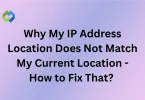The rise of the gig economy and remote work trends has made freelancing a viable option for many. It provides opportunities for individuals to explore different industries, gain diverse experiences, and build their own businesses without the constraints of traditional employment. Moreover, freelancing fosters innovation and collaboration, as professionals from around the world can easily connect and collaborate on projects.
Table of Contents
Table of Contents
Identifying Your Skills and Passion
Identifying your skills and passion is the cornerstone of a successful freelancing career. Begin by taking stock of your abilities, both technical and soft skills. Technical skills could include writing, graphic design, coding, or marketing, while soft skills might encompass communication, problem-solving, or time management. Reflect on past experiences, hobbies, and activities where you’ve excelled or felt particularly engaged. These can provide valuable insights into your strengths and interests.
Next, delve deeper into what truly ignites your passion. Consider the tasks or projects that energize you and leave you feeling fulfilled. Think about the subjects or industries that captivate your interest and where you’d enjoy investing your time and effort. Passion fuels motivation and drives excellence, so choosing freelance opportunities that align with your passions can lead to greater job satisfaction and success.
Finally, don’t overlook the importance of market demand and trends. While it’s essential to pursue work that you’re passionate about, it’s equally important to ensure there’s a viable market for your skills. Research freelance job boards, industry reports, and networking opportunities to gauge demand for your services. Finding the intersection between your skills, passions, and market demand will set you on the path to a thriving freelance career.
Building Your Portfolio
Building a compelling portfolio is essential for establishing credibility and attracting clients as a freelancer. Start by selecting your best work samples that showcase your skills and expertise. These samples should demonstrate the quality of your work and highlight the range of services you offer. If you’re just starting and don’t have many projects to showcase, consider creating mock projects or offering your services pro bono to build your portfolio.
Once you’ve curated your samples, organize them in a professional and visually appealing manner. Create a dedicated portfolio website or utilize platforms like Behance, Dribbble, or LinkedIn to showcase your work. Include clear descriptions of each project, outlining your role, the problem solved, and the results achieved. Don’t forget to include testimonials or endorsements from satisfied clients or colleagues to reinforce your credibility.
Regularly update your portfolio with new projects and skills to reflect your growth and expertise. Consider incorporating diverse types of work to demonstrate your versatility and adaptability. Additionally, seek feedback from peers or mentors to continually improve your portfolio and make it more compelling. A well-crafted portfolio not only showcases your capabilities but also serves as a powerful tool for winning new clients and advancing your freelancing career.
Setting Up Your Freelance Business
Setting up your freelance business involves several important steps to ensure legal compliance, professionalism, and efficiency.
Choosing a Business Structure
Research various business structures like sole proprietorship, partnership, LLC, or corporation. Understand the legal and tax implications associated with each structure. Consider factors such as liability protection, taxation, and administrative requirements. For example, if your goal is to maximize tax benefits, forming an LLC in Wyoming might be the ideal option, as the state has no income tax and offers low registration fees, making it a great choice for startups.
Registering Your Business
Determine the legal requirements for registering a business in your jurisdiction. Obtain the necessary business licenses, permits, and certifications to operate legally. Register your business name with the appropriate government agencies. Research any industry-specific regulations or professional certifications required for your freelance work. Keep track of renewal dates for licenses and permits to ensure ongoing compliance.
Managing Your Finances
Open a separate business bank account to keep personal and business finances distinct.
Set up accounting systems to track income, expenses, and invoices accurately. Maintain organized records for tax purposes, including receipts, invoices, and financial statements. Estimate and set aside funds for taxes, considering self-employment tax and any applicable deductions. Consider hiring an accountant or using accounting software to streamline financial management tasks.
Setting Up Your Workspace
Designate a dedicated workspace within your home or rent a separate office space if feasible. Invest in essential equipment and tools needed for your freelance work, such as a computer, software, and ergonomic furniture. Ensure your workspace is comfortable, well-lit, and conducive to productivity. Set up reliable internet access and consider backup options to minimize downtime. Organize your workspace efficiently, keeping supplies and materials easily accessible for work tasks.
Creating a Professional Online Presence
Creating a professional online presence is essential for freelancers looking to showcase their skills, attract clients, and establish credibility in their respective industries.
Building a Website
Choose a domain name that reflects your brand or services. Select a reliable web hosting provider to host your website. Design a professional and visually appealing website using templates or hiring a web designer.
Include essential information such as your bio, services offered, portfolio, testimonials, and contact details. Optimize your website for search engines (SEO) to improve visibility and attract potential clients. Regularly update your website with new content, projects, and blog posts to keep it fresh and engaging.
Optimizing Your LinkedIn Profile
Create a compelling headline that highlights your expertise and services. Write a detailed and engaging summary that showcases your skills, experience, and accomplishments. Customize your profile URL to make it more professional and easy to share.
Upload a professional profile picture and background photo that aligns with your brand. List your relevant work experience, education, skills, and certifications to demonstrate your expertise. Actively engage with your network by sharing updates, articles, and insights related to your industry.
Using Social Media Effectively
Identify the social media platforms where your target audience is most active.
Create and optimize profiles on selected platforms, such as Facebook, Twitter, Instagram, or Pinterest. Develop a content strategy that showcases your expertise, personality, and interests while providing value to your audience.
Share your work, projects, testimonials, and industry insights to establish credibility and attract followers. Engage with your audience by responding to comments, messages, and inquiries in a timely and professional manner. Utilize social media advertising and analytics tools to reach a wider audience and track the performance of your content.
Networking Online
Join professional groups and communities relevant to your industry or niche. Participate in online forums, discussions, and networking events to connect with peers and potential clients. Share your knowledge and expertise by answering questions, offering advice, and contributing to discussions.
Build relationships with influencers, thought leaders, and potential collaborators in your field. Use messaging and networking features on platforms like LinkedIn to reach out to prospects and initiate conversations. Follow up with connections regularly to nurture relationships and explore potential opportunities.
Finding Freelance Opportunities
Discovering opportunities is the first step towards building a successful career.
Freelance Job Platform
Explore popular freelance job platforms such as Upwork, Freelancer, Fiverr, and Guru. Create a detailed profile highlighting your skills, experience, and expertise. Browse job listings relevant to your skills and interests.
Submit proposals for projects that align with your expertise, demonstrating your qualifications and understanding of the client’s needs. Use filters and search options to narrow down job listings based on criteria such as budget, project type, and client ratings. Stay active and responsive to messages and invitations from potential clients.
Networking Strategies
Attend industry events, conferences, and meetups to network with professionals in your field.
Join online communities, forums, and social media groups related to your niche. Participate in discussions, share your knowledge, and engage with other members to build relationships.
Use your existing network of contacts, colleagues, and former clients for referrals and recommendations. Reach out to past clients for potential repeat business or referrals to new clients. Collaborate with other freelancers or agencies on projects that require complementary skills, expanding your network and potential opportunities.
Utilizing Job Boards and Forums
Explore niche-specific job boards and forums relevant to your industry or skillset. Regularly check job listings and project postings on platforms like Reddit, ProBlogger, or We Work Remotely. Join freelance communities on platforms like Reddit, Stack Overflow, or GitHub, where job opportunities are often shared.
Monitor online job boards and forums for freelance gigs, contract work, and remote job openings. Set up email alerts or notifications to stay informed about new job postings matching your criteria. Tailor your applications and pitches to each job opportunity, highlighting relevant experience and skills.
Building Relationships with Agencies and Recruiters
Research and connect with agencies and recruiting firms specializing in freelance placements. Submit your portfolio and resume to agencies that match your skills and interests. Attend agency-hosted events or webinars to learn more about their services and potential freelance opportunities.
Build rapport with recruiters by staying in touch, providing updates on your availability, and expressing interest in relevant projects. Be responsive to inquiries and interview requests from recruiters, demonstrating your professionalism and reliability. Consider signing up with multiple agencies to increase your chances of finding freelance work across different industries and sectors.
Crafting Winning Proposals
Crafting winning proposals is an art that combines persuasion, professionalism, and a deep understanding of client needs. Start by thoroughly researching the client’s requirements, objectives, and preferences. Tailor your proposal to address their specific needs and demonstrate your understanding of their project. Highlight your relevant experience, skills, and accomplishments that make you the ideal candidate for the job.
In addition to showcasing your qualifications, focus on articulating the value you will bring to the client’s project. Clearly outline your proposed approach, deliverables, and timeline, demonstrating how your expertise will help the client achieve their goals. Use concrete examples and case studies to illustrate your past successes and the results you’ve delivered for similar projects. By painting a clear picture of the benefits the client will receive by choosing you, you’ll increase your chances of winning the project.
Finally, pay attention to the presentation and formatting of your proposal to make it visually appealing and easy to read. Use professional language and grammar, and ensure your proposal is well-organized with clear sections and headings. Proofread your proposal carefully to eliminate any errors or typos that could detract from your professionalism.
Managing Client Relationships
Managing client relationships involves clear communication, transparency, trust-building, and proactive problem-solving. Setting expectations for project scope, timelines, and communication protocols is essential. Regular updates on progress and milestones maintain transparency and build trust, while actively listening to client feedback ensures alignment with their vision and needs.
Additionally, proactive problem-solving involves anticipating and addressing issues or challenges that may arise during the project, demonstrating your commitment to delivering results and exceeding expectations. By consistently exceeding expectations and expressing gratitude for the opportunity to work together, long-term partnerships are nurtured. This approach fosters goodwill and potential future collaborations.
Delivering Quality Work
Delivering quality work is paramount in freelancing, as it underpins your reputation and client satisfaction. It begins with a thorough understanding of the project requirements, ensuring clarity and alignment with the client’s vision. Strive for excellence by adhering to deadlines and communicating effectively throughout the process, addressing any concerns or revisions promptly. This commitment to quality not only meets client expectations but also enhances your professional credibility in the freelancing community.
Consistency is key to delivering quality work consistently, maintaining a high standard across all projects. Pay attention to detail and ensure accuracy in every deliverable, regardless of project size or complexity. By prioritizing quality in your work, you establish yourself as a reliable and trustworthy freelancer, fostering long-term relationships with clients and earning their trust and loyalty.
Furthermore, embrace feedback as an opportunity for growth and improvement. Actively seek client input and be receptive to suggestions for enhancing your work. Incorporating feedback demonstrates your commitment to delivering the best possible results and reinforces your dedication to client satisfaction.
Growing Your Freelance Business
Growing your freelance business involves strategic planning, proactive marketing, and continuous skill development. Start by identifying your target market and niche to focus your efforts effectively. Expand your client base by networking, leveraging social media, and attending industry events to connect with potential clients and collaborators. Invest in your professional development by acquiring new skills, certifications, or advanced training to stay competitive in your field.
Additionally, consider scaling your business by outsourcing tasks or partnering with other freelancers to take on larger projects and expand your service offerings. By adopting a proactive approach to growth and investing in your skills and network, you can propel your freelance business to new heights of success.
Overcoming Common Challenges
Dealing with Rejection
- Maintaining a Positive Mindset: Cultivate resilience by focusing on your strengths and past successes. Practice positive self-talk and remind yourself that rejection is a natural part of the freelancing journey.
- Seeking Constructive Feedback: Request feedback from clients or peers to gain insights into areas for improvement. Use feedback as an opportunity for growth and learning.
- Learning from Setbacks: Analyze rejected proposals or unsuccessful projects to identify patterns or areas for improvement. Use setbacks as learning opportunities to refine your approach and enhance your skills.
- Developing Resilience Strategies: Build resilience by developing coping mechanisms such as mindfulness, exercise, or hobbies that help you bounce back from rejection and maintain motivation.
Managing Finances
- Budgeting and Financial Planning: Create a budget to track income and expenses, and set aside funds for taxes, savings, and business expenses. Plan for irregular income by establishing an emergency fund.
- Invoicing and Payment Tracking: Implement a system for invoicing clients promptly and tracking payments to ensure timely payment. Use accounting software or spreadsheets to maintain accurate financial records.
- Saving for Taxes: Estimate your tax obligations and set aside a portion of your income for taxes regularly. Consider working with a tax professional to navigate tax laws and maximize deductions.
- Seeking Professional Financial Advice if Needed: Consult with a financial advisor or accountant for personalized guidance on managing your freelance finances, retirement planning, and investment strategies.
Balancing Work and Life
- Establishing Boundaries: Set clear boundaries between work and personal life by defining working hours, taking regular breaks, and designating a dedicated workspace.
- Prioritizing Self-Care: Make time for self-care activities such as exercise, hobbies, or spending time with loved ones to recharge and prevent burnout.
- Setting Realistic Workload Expectations: Avoid overcommitting by realistically assessing your capacity and workload. Learn to say no to projects that exceed your bandwidth or don’t align with your priorities.
- Allocating Time for Personal Activities and Downtime: Schedule regular time for relaxation and leisure activities to maintain a healthy work-life balance. Prioritize activities that bring you joy and fulfillment outside of work.
Navigating Uncertainty
- Adapting to Market Changes: Stay informed about industry trends, market demands, and emerging opportunities. Be flexible and adaptable in adjusting your services or target market to meet changing client needs.
- Diversifying Income Streams: Explore additional revenue streams such as passive income, affiliate marketing, or teaching online courses to diversify your income and mitigate financial risks.
- Staying Flexible and Agile: Embrace uncertainty by staying flexible in your approach and adapting to changing circumstances. Be open to exploring new opportunities and pivoting when necessary.
- Developing Contingency Plans for Unforeseen Circumstances: Prepare for unexpected events such as illness, economic downturns, or client emergencies by creating contingency plans. Maintain an emergency fund and explore insurance options to mitigate financial risks.
FAQs
Can I start freelancing without any prior experience?
Yes, freelancing is open to everyone, regardless of experience. You can begin by offering services based on your skills and learning as you go.
How do I find freelance work if I don’t have a portfolio?
Start by offering your services for free or at a discounted rate to build your portfolio. You can also create sample projects or showcase relevant personal projects to demonstrate your abilities.
Do I need to register as a freelancer or start a business to get started?
It depends on your location and the nature of your freelance work. In some cases, you may need to register as a freelancer or start a small business to comply with legal requirements and access certain benefits.
How do I determine what to charge for my freelance services?
Research industry standards and rates for similar services in your field. Consider factors such as your level of expertise, overhead costs, and the value you provide to clients when determining your rates.
How can I stay motivated and disciplined as a new freelancer?
Set clear goals and deadlines for yourself, break tasks into smaller, manageable steps, and establish a routine. Surround yourself with a supportive network of fellow freelancers or mentors for encouragement and accountability.
Conclusion
Starting freelancing without experience may seem tough, but it’s doable with the right approach. Identify your skills, create a strong portfolio, and use online platforms to find work. Keep learning, seek feedback, and adapt to changes in the industry to stay competitive.
Despite challenges, perseverance and quality work will lead to success. Stay focused, be resilient, and deliver your best. With dedication, your freelancing journey can turn your skills into a rewarding career. So, take the leap, embrace the journey, and watch your freelancing dreams become a reality.














